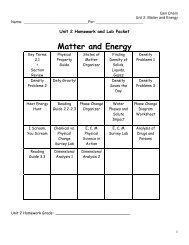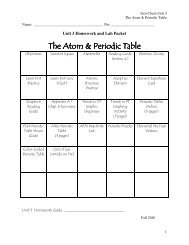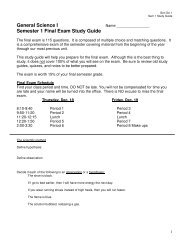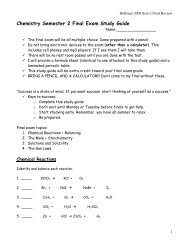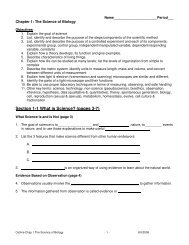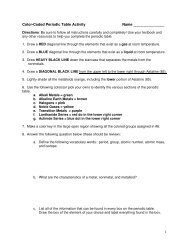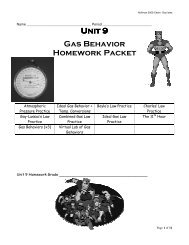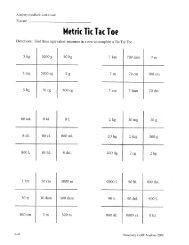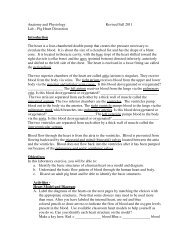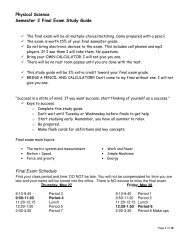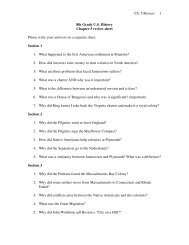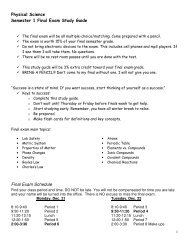The Industrial Revolution: The Human Side
The Industrial Revolution: The Human Side
The Industrial Revolution: The Human Side
You also want an ePaper? Increase the reach of your titles
YUMPU automatically turns print PDFs into web optimized ePapers that Google loves.
Advanced Placement European History, Book 1Lesson 27Handout 45 (page 5)NameDate<strong>The</strong> <strong>Industrial</strong> <strong>Revolution</strong>: <strong>The</strong> <strong>Human</strong> <strong>Side</strong>__Directions: Read the selections for the identity assigned to your group: factory workers, factoryowners, or economists. Prepare a point of view on the <strong>Industrial</strong> <strong>Revolution</strong> for your group topresent to an objective historian. In your presentation, include the main thrust of the argumentyou would like to have presented in a history of the <strong>Industrial</strong> <strong>Revolution</strong> and providethree points of evidence to support this position. <strong>The</strong>n write two questions, one for each of theopposing opinions, that would force them to admit the validity of your position.EconomistsDavid Ricardo: On WagesLabour, like all other things which are purchased and sold, and whichmay be increased or diminished in quantity, has its natural and its marketprice. <strong>The</strong> natural price of labour is that price which is necessary toenable the labourers, one with another, to subsist and perpetuate theirrace, without either increase or diminution.<strong>The</strong> power of the labourer to support himself, and the family whichmay be necessary to keep up the number of labourers, does not depend onthe quantity of money which he may receive for wages, but on the qualityof food, necessaries, and conveniences [that.] become essent.ial to himfrom habit, which that money will purchase. <strong>The</strong> natural price of labour,therefore, depends on the price of the food, necessaries, and conveniencesrequired for the support of the labourer and his family. With a rise in theprice of food and necessaries, t.he natural price of labour will rise; withthe fall in their price, the natural price of labour will fall.With the progress of society the natural price of labour has always at.endency to rise, because one of the principal commodities by which itsnatural price is regulated, has a tendency to become dearer, from t.he greaterdifficulty of producing it. As, however, the improvements in agriculture,the discovery of new markets, whence provisions may be imported, mayfor a time counteract the tendency to a rise in the price of necessaries,and may even occasion their nat.ural price to fall, so will the same causesproduce the correspondent effects on the natural price of labour. . . .<strong>The</strong> market price of labour is the price which is really paid for it, fromthe natural operation of the proportion of the supply to the demand; labouris dear when it is scarce, and cheap when it is plentiful. However muchof the market price of labour may deviate from its natural plice, it has,like commodities, a tendency to conform to it.It is when the market price of labour exceeds its natural price, thatthe condition of the labourer is nourishing and happy, that he has it inhis power to command a greater proportion of the necessaries and _enjoymentsof life, and therefore to rear a healthy and numerous family. When,however, by the encouragement which high wages give to the increase ofpopulation, the number of labourers is increased, wages again fall to theirnatural price, and indeed from a reaction sometimes fall below it.When the market price of labour is below its natural price, the conditionof the labourers is most wretched; then poverty deprive~ them ofthose comforts which custom renders absolute necessaries. It is only aftertheir privations have reduced their number, or the demand for labour hasincreased, that the market price of labour will rise to its natural price,and that the labourer will have the moderate comforts which the naturalrate of wages will afford.''David Ricardo, Principles of Political Economy and Taxation, in Economic Doctrines, Frank AmandusMcGuin Publishers, 1946), 147-48.© COPYRIGHT,<strong>The</strong> Center for Learning. Used with permission. Not for resale.193Neff (Wichita. Kans.:



